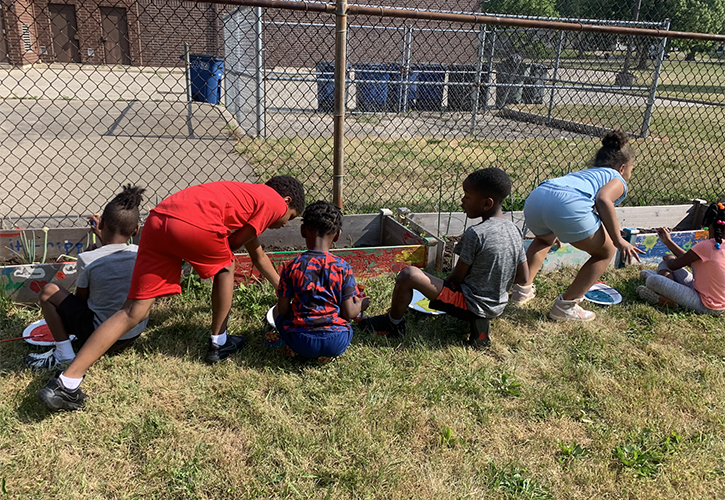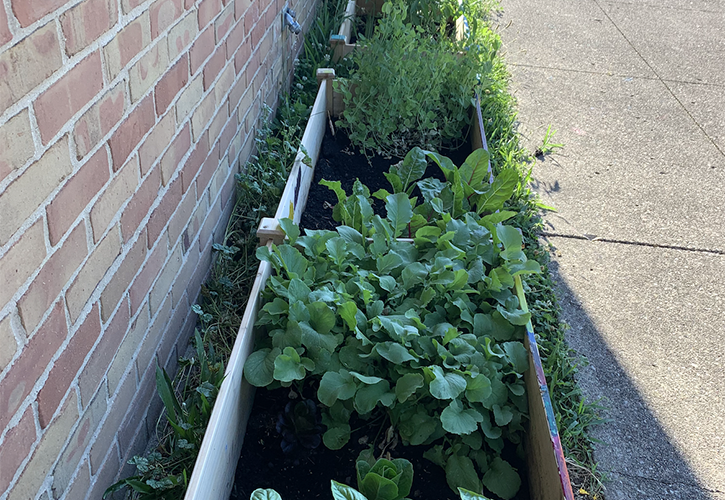Hanley Sustainability Institute

HSI Undergraduate Fellow brings sustainability to youth
By Emme Gerth
Sustainability students are often taught the three pillars of sustainability: environmental, social and economic. These three categories require large lifts that can feel overwhelming, disappointing and scary. The phrase “eco-anxiety” has been recognized to define these shared fears among sustainability-minded people. Though it is normal to experience eco-anxiety, this past summer I had the opportunity to shift these fears for myself and Dayton’s youth.
I worked for the City of Dayton Sustainability Office as a Hanley Sustainability Institute (HSI) Undergraduate Sustainability Fellow. One of my key roles was as the Sprouts Environmental Educator. Dayton Sprouts is a city of Dayton program designed to educate children about the importance of living a healthy and sustainable lifestyle.
The first few weeks of preparation were extremely daunting. I wanted to be extremely thoughtful with everything I did. I made sure to understand the environmental, social and economic vulnerabilities facing the communities I was working with. I understood that urban youth often don’t receive the same opportunities and experiences and wanted to try to give the most I could in eight weeks. I was very scared to let down myself, the people supporting me in the opportunity and, most importantly, the kids.
Once I began teaching, the fear immediately shifted to passion, care and growth. I cared deeply for all of the 200 kids I spent time with, making it impossible to do anything but try my best. I wanted to give them as much knowledge and encouragement as I could. Regardless of whether they learned and retained the lessons, I wanted to leave them with a positive relationship with the environment and their peers.
One big takeaway from the summer is that a lot of personal learning comes out of teaching. Being able to take knowledge and information that I have learned at the University of Dayton and share it with youth in a more digestible and positive format was so beneficial to my understanding of environmental processes. Turning complex ideas such as microbes, renewable energy and watersheds into games and crafts was such a fun way to engage in conversations about solutions that I had never thought of.

The children were positive, passionate and curious, which are essential qualities when talking about sustainability. Leaning into their interests and showing how sustainability can be intertwined was extremely fulfilling.
Surrounding myself with youth and their positivity helped to reaffirm my own passion for the environment and people. Though I still feel the occasional “eco-anxiety," when I reflect upon this experience, I feel hopeful. I feel so much gratitude toward the children. We can better achieve environmental, social and economic sustainability if we give opportunities to youth, whose voices aren’t always heard.
